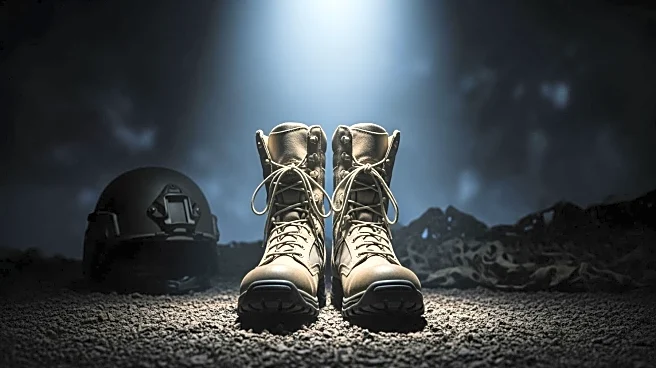What's Happening?
Matan Angrest, a former hostage recently released from captivity in Gaza, has expressed his desire to return to combat duty in the Israel Defense Forces (IDF). Angrest conveyed this wish to IDF Chief of
Staff Lt. Gen. Eyal Zamir during a meeting at Ichilov Hospital in Tel Aviv. Angrest, along with fellow soldier Nimrod Cohen, was part of a recent hostage release deal. Despite suggestions from Zamir to consider a training role, Angrest insisted on returning to operational duty. This conversation took place shortly before Angrest attended the funeral of his tank commander, Capt. Daniel Peretz, who was killed in an attack by Hamas on October 7. Angrest also expressed his willingness to return to Gaza to retrieve the body of Staff Sgt. Itay Chen, whose remains are still held by Hamas.
Why It's Important?
The determination of Matan Angrest to return to combat duty highlights the resilience and commitment of IDF soldiers, even after enduring captivity. This development underscores the ongoing tensions and complex dynamics between Israel and Hamas, particularly in the context of hostage situations and military engagements. Angrest's stance may influence public perception and morale within the IDF, as well as among the Israeli public. The situation also reflects the broader geopolitical challenges in the region, where military and humanitarian issues are deeply intertwined. The IDF's handling of such cases can impact its operational strategies and diplomatic relations.
What's Next?
The IDF may need to assess Angrest's request to return to combat duty, considering both his personal readiness and the broader implications for military operations. The decision could set a precedent for how the IDF handles similar cases of soldiers returning from captivity. Additionally, the ongoing efforts to retrieve the remains of Staff Sgt. Itay Chen may continue to be a point of focus for the IDF, potentially involving further negotiations or military actions. The situation may also prompt discussions within Israeli society and government regarding the treatment and reintegration of former hostages.









